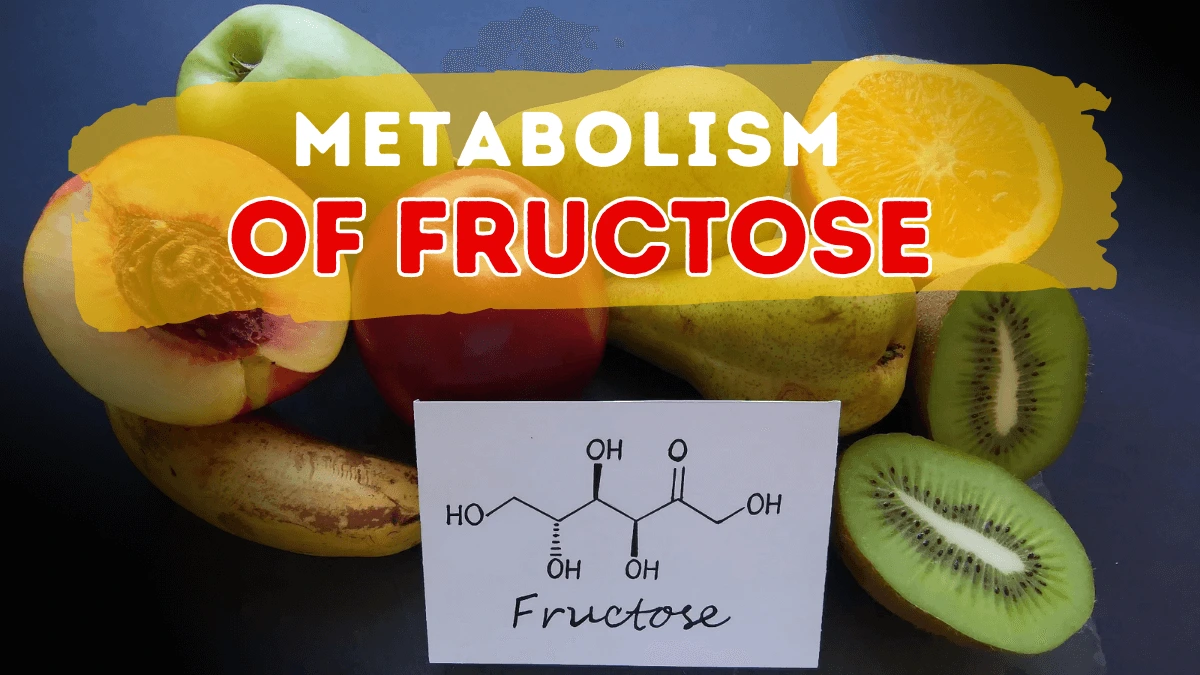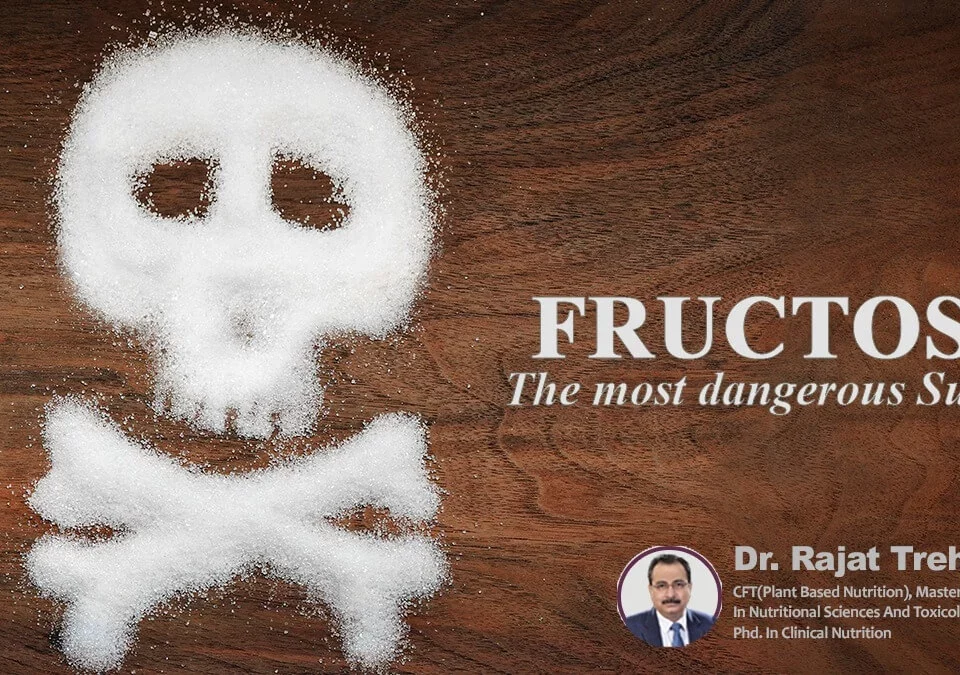Metabolism of Fructose

Mangoes & Their Super 8 Health Benefits: Deliciously Healthy Fruit
August 19, 2023
How does water support a healthy digestive system?
November 4, 2023There are many types of sugars, and Fructose is one of them. It is a naturally occurring monosaccharide or 'single' sugar, like Glucose. Fructose is primarily called fruit sugar, as it is found in fruits and other plant products like honey, sugarcane, and vegetables.
Monosaccharide sugar cannot be hydrolysed or broken into simple sugar. Monosaccharide binds together to form disaccharides, for example, sucrose.
Fructose is abundant in human diets as the body needs it to metabolise. Their consumption adds a significant amount of sugar to the body.
How do we obtain Fructose?
It is called natural sugar or fruit sugar, it is readily available in fruits (apples, dates, pears), but it is also found in vegetables like mushrooms, onions and more.
Fructose is also commercially made from corn starch by mixing with enzymes to add to packaged food and beverages like cokes. It becomes added sugar when you don't consume it naturally.
Currently, no recommendation has been released on the consumption of Fructose. But it is recommended to lower the intake of packaged sugar (like fructose corn syrup) to less than 10% of total calories per day.
How does our body digest Fructose?
Like Glucose, the metabolism of Fructose does not require insulin. Glucose is released in the bloodstream for our tissues to use as an energy source.
Fructose doesn't release insulin in the pancreas; only a few tissues, such as the liver, can metabolise it. Fructose goes through fructolysis in the liver and uses most of the same enzymes as in the glucose pathway.
Most cells in the human body are incapable of metabolising Fructose directly. Therefore, most of the reactions occur in the cytosol (a liquid inside the cells) of the cells in the liver.
Furthermore, Fructose doesn't release hormones like leptin that signal the brain to regulate appetite. As a result, you may eat more than required and become overweight.
Function of Fructose
In her book "Human Physiology," Dr Lauralee Sherwood mentioned that the liver store glycogen, a long chain of Glucose, to fulfil the needs of energy during fasting or emergency.
Fructose supports the metabolism of Glucose and acts by several mechanisms to facilitate the elimination of carbohydrates after a meal. According to the National Library of Medicine, Fructose provides energy for the mobility of spermatozoa (a mature male sex cell of an animal).
Cons of Fructose
Although Fructose is obtained from natural substances like fruit and vegetables, studies suggest that Fructose specifically added Fructose over natural Fructose can affect your health if consumed in more than optimal quantity.
Let's understand why you should limit your intake of processed Fructose, including fructose corn syrup.
Obesity
In the 2017 literature review, researchers found that high consumption of sugary beverages rich in Fructose can cause metabolic syndrome because of the development of obesity. Obesity is an excessive amount of fat that presents a health risk.
Thus it is strongly recommended to include exercise in your daily routine to combat weight gain.
Insulin Resistance
High consumption of Fructose leads to insulin resistance in the tissues because of inflammation.
When cells become insulin resistant, it increases the glucose level in the blood. It can cause several health problems like diabetes.
In a 2016 study, researchers found that those who consumed high-fructose drinks had high insulin resistance compared to non-drinkers.
Liver issues
The National Institute of Health suggests that a fructose-rich diet can increase the risk of having non-alcoholic fatty liver disease. It is a disease when too much fat is stored in your liver cells. It can even lead to liver damage or inflammation, resulting in liver cirrhosis or failure.
Tumour Growth
This is a debatable study, but in 2021 researchers found that mice consuming too much Fructose promote intestinal tumour growth.
In the 2019 study, the same findings had observed where high fructose corn syrup seemed to extend the period of the tumour.
Hence, like alcohol, Fructose is metabolised in the liver; some say it may affect the same as alcohol.
Today, there is much contrasting evidence about fructose-based foods as they usually contain other sugars and have high calories. However, limiting the intake of added Fructose in your diet is safe to keep yourself healthy.







